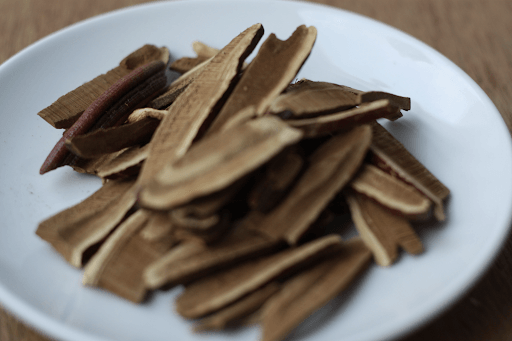The renowned Reishi mushroom (Ganoderma spp.) is a symbol of power, protection, wealth, health, luck, longevity, and beauty.
Its reputation as a potent medicinal mushroom has earned it nicknames like the Mushroom of Immortality, 10,000-Year Mushroom, Mushroom of Eternal life, and God’s Herb.
Reishi has been used medicinally for thousands of years, with the first written document mentioning Reishi coming in the era of the first emperor of China, Shih-huang (Qin Shi Huang) of the Ch’in (Qin dynasty) Dynasty (221-210 B.C.)
But you didn’t come here just for a history lesson, right?
We get it. Without further ado, here are five health benefits the miraculous Reishi mushroom offers for a healthier, happier, longer life.
********************************************************************************************************
1. A Strong, Balanced Immune System
Reishi mushrooms are one of the most well studied medicinal mushrooms out there and have been used to fight cancer, viral and bacterial infections, cardiovascular diseases (including high cholesterol and blood pressure), diabetes, to slow aging, act as an antihistamine, and improve general well being.
How can it do all this?
Over time, science has come to attribute much of Reishi’s medicinal potency to the more than 500 distinct Ganoderic acids within the mushrooms.
Ganoderic acids are terpenoids — naturally occurring organic chemicals derived from the 5-carbon compound isoprene — unique to mushrooms within the Ganoderma genus of fungi, and are responsible for the mushroom’s anti-inflammatory effects as well as its ability to help the immune system find homeostasis during times of stress and fatigue.
Reishi mushrooms also contain over 200 polysaccharides, — i.e. complex, long chain sugars — more than 150 triterpenes, and significant amounts of the amino acids alanine, leucine, aspartic acid, and glutamic acid.
The most potent polysaccharides are known as beta-d-glucans. Beta-D-glucans’ main superpower is the ability to enhance the body’s defense against many forms of disease such as autoimmune disorders, viruses, and various types of cancer. In a nutshell, beta-d-glucans provide these miraculous benefits by activating the various cells — T-cells, NK-cells, B-cells, and Phagocytes — that comprise the immune system.
Terpenoids like Ganoderic acids work in conjunction with beta-d-glucans to strengthen the immune response while simultaneously ensuring it doesn’t become overactive. In more scientific terms, this effect is known as immunomodulatory. That’s about as good as it gets for an immune system boosting supplement, we think.
2. Mood Booster
A 2013 study of the effects of administering Reishi mycelium (Gandoerma lucidum) to rats concluded that the mycelium possessed “antidepressant-like potential” due to its ability to antagonize the brain’s 5-HT2A receptors. The same study also attributed an anti-anxiety effect to Reishi mycelium.
3. Anti-inflammatory
A 2009 study into the anti-inflammatory properties of the triterpenes in Reishi mushrooms concluded that the triterpenes “markedly suppressed the secretion of inflammatory” cells in mice.
4. Anti-cancer
A 2018 study on the polysaccharides within Reishi mushroom (Gandoerma lucidum) concluded that “GLP (Ganoderma Lucidum Polysaccharides) possesses potential anticancer activity through immunomodulatory, anti-proliferative, pro-apoptotic, anti-metastatic and anti-angiogenic effects. Hence, combined use of GLP could be beneficial to cancer patients receiving conventional chemotherapy and/or radiotherapy, and help improve patient’s immune function and alleviate the toxicity of conventional therapy.”
5. Anti-obesity and Prebiotic
A 2018 study on mice found that the polysaccharides within Ganoderma lucidum “act as prebiotics to modulate gut microbiota composition” and that after being administered polysaccharides from Reishi mushrooms, “bacteria that have been reported for anti-obesity...were significantly abundant in mice.”
Sources:
- https://www.ncbi.nlm.nih.gov/pmc/articles/PMC6624854/
- https://pubmed.ncbi.nlm.nih.gov/19651243/
- https://bmccomplementmedtherapies.biomedcentral.com/articles/10.1186/1472-6882-13-370
- https://www.sciencedirect.com/science/article/abs/pii/S1756464617307715
- https://www.ncbi.nlm.nih.gov/pmc/articles/PMC5618583/

